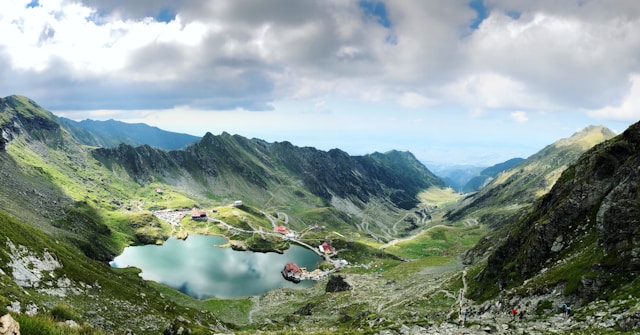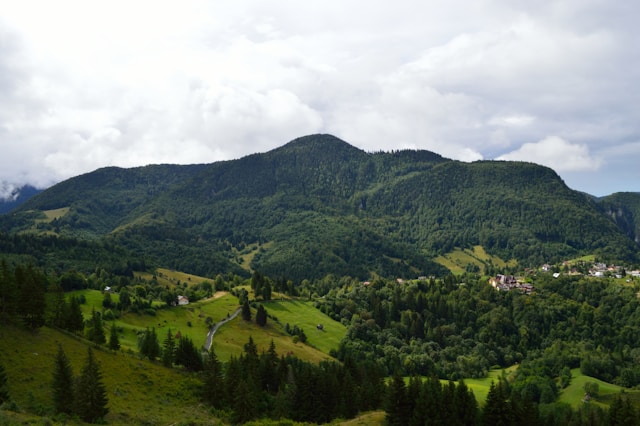
Retail and Industrial Real Estate Evolution in Transylvania's Tourism Sector
Transylvania, a Romanian region full of history and natural beauty, has seen a remarkable transformation in recent years. The growth in tourism has not only brought in waves of visitors eager to explore its castles, forests, and folklore but has also created significant growth in the retail and industrial real estate sectors. Here are some ideas on the evolution of these sectors in response to the development of the tourism industry in Transylvania, focusing on key developments and future prospects.
Tourism Boom and Its Ripple Effects
Transylvania's allure, from the legend of Dracula to its UNESCO World Heritage sites, has made it a prime destination for tourists from around the globe. According to recent statistics, the region has experienced a consistent increase in tourist arrivals, with numbers soaring by over 20% annually. This influx has necessitated the expansion and modernization of infrastructure to accommodate the growing demands.
Retail Real Estate: Adapting to New Demands
The rise in tourism has had a direct impact on the retail real estate market. Towns like Brașov, Sibiu, and Cluj-Napoca have become commercial hubs, with retail spaces evolving to cater to both tourists and locals.
1. Expansion of Shopping Centers:
Case Study: AFI Brașov AFI Brașov, a modern shopping mall, stands as a testament to the retail transformation in Transylvania. Opened in late 2020, it offers a mix of international brands, entertainment options, and dining experiences, attracting a diverse crowd. The mall's strategic location and comprehensive offerings have made it a popular spot for tourists looking for a one-stop shopping experience.
2. Growth of Local Markets and Souvenir Shops:
Transylvania's unique cultural heritage has spurred the growth of local markets and souvenir shops. Cities like Sibiu host traditional markets where tourists can purchase handcrafted items, local wines, and traditional foods. These markets not only boost the local economy but also enhance the tourist experience, creating a demand for more retail spaces.
3. Hospitality-Driven Retail:
With the increase in boutique hotels and guesthouses, there has been a parallel rise in demand for nearby retail establishments. Tourists prefer convenience, leading to the proliferation of mini-marts, cafes, and specialty stores around major tourist attractions.

Industrial Real Estate: Meeting the Infrastructure Needs
The industrial real estate sector in Transylvania has also evolved, driven by the need to support the growing tourism industry.
1. Development of Logistic Hubs:
Efficient logistics are crucial for maintaining the supply chain of retail and hospitality sectors. The development of logistic hubs in cities like Cluj-Napoca ensures that businesses can stock up on necessary goods without delay. These hubs also facilitate the distribution of local products to other parts of Romania and beyond, boosting the region's economy.
2. Industrial Parks and Manufacturing:
To support the increasing demand for construction materials and goods, several industrial parks have been established. The Industrial Parks in Cluj-Napoca are prime examples, housing various manufacturing units and warehouses. These parks provide the necessary infrastructure for businesses to thrive, including great facilities and easy access to major transportation routes.
3. Green Initiatives in Industrial Development:
Sustainability has become a key consideration in the development of industrial real estate. Projects like the one in Turda emphasize eco-friendly practices, from energy-efficient buildings to sustainable waste management systems. Such initiatives not only reduce the environmental impact but also appeal to the growing segment of eco-conscious tourists.

Future Prospects and Challenges
The synergy between tourism and real estate in Transylvania presents numerous opportunities for growth. However, there are challenges that need to be addressed to sustain this momentum.
1. Infrastructure Improvement:
Continuous investment in infrastructure, including roads, public transport, and utilities, is essential to support the expanding tourism and real estate sectors. Public-private partnerships could play a pivotal role in these developments.
2. Balancing Development and Heritage Conservation:
Preserving Transylvania's rich cultural and historical heritage while promoting modern development is a delicate balance. Policies that encourage sustainable development and protect heritage sites are crucial.
3. Addressing Seasonality:
Tourism in Transylvania is often seasonal, peaking during summer and winter holidays. Developing year-round attractions and promoting off-season tourism can help stabilize demand for retail and industrial real estate.
Transylvania's transformation, driven by its tourism boom, has had a profound impact on its retail and industrial real estate sectors. From modern shopping centers and local markets to logistic hubs and industrial parks, the region is evolving to meet new demands. By addressing infrastructure needs and balancing development with heritage conservation, Transylvania can continue to thrive as a premier tourist destination with a robust real estate market.

